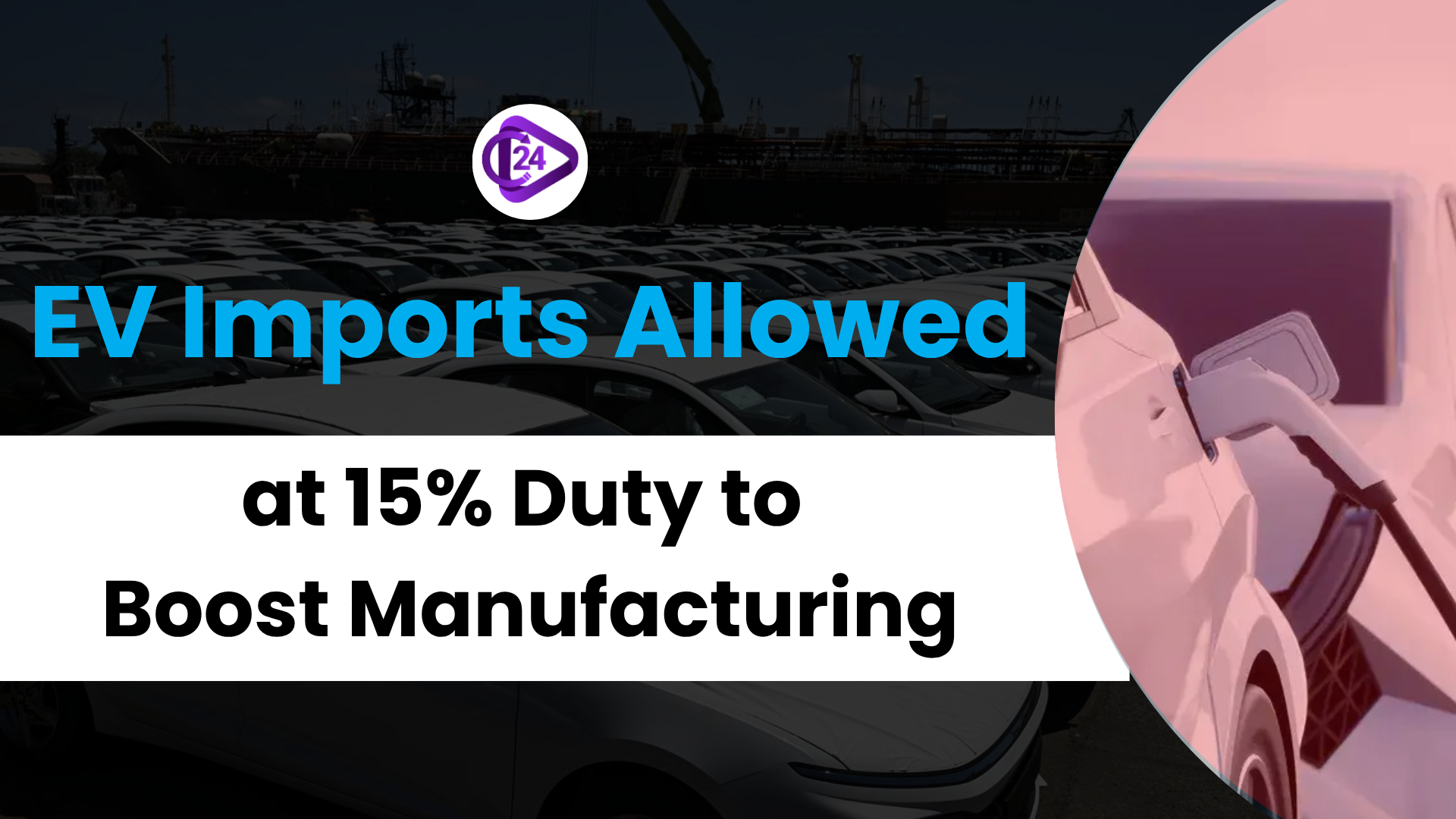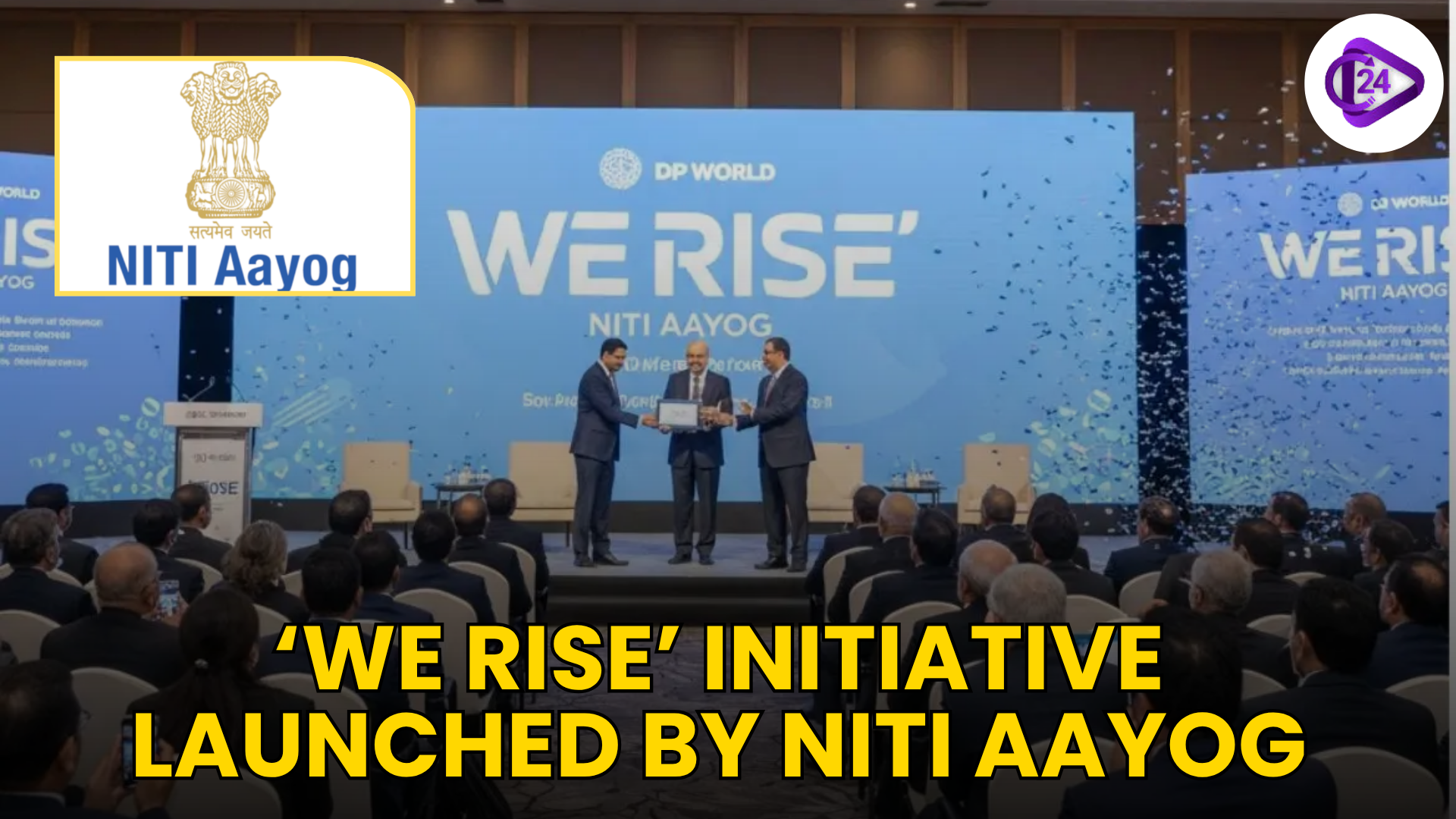
The Indian government has introduced new rules to help domestic manufacturing of electric vehicles (EVs) by reducing the import tax for foreign producers. Carmakers investing at least ₹4,150 crore in electric vehicle manufacturing are allowed to import up to 8,000 electric vehicles at a discounted duty of only 15%, compared to today’s rates of 70-100%. EV policy seeks to greatly increase production of EVs in India, bring in more foreign investors and meet local content rules. The guidelines appeared 15 months after the import policy was announced, they cover both greenfield and brownfield investments. Tesla has apparently not expressed any wish to manufacture in India.
Context
-
The government has introduced an EV import policy, so manufacturers who contribute to local automotive production now only have to pay 15% customs duty and can import as many as 8,000 EVs per year.
-
It tries to increase India’s own EV manufacturing and attract more investors, but those investors must meet local content rules.
Key Points
Concessional Import Duties
-
Products imported from EV companies are taxed at a rate of 15% for five years, reduced from the earlier 70-100%.
-
It is for electric cars that are fully assembled and whose minimum CIF (cost-insurance-freight) value is $35,000 or higher.
Investment and Production Requirements:
-
At least ₹4,150 crore must be invested in making electric cars in India by multinationals.
-
Within 3 years from approval, the operations should begin.
-
The local authority sets standards for the amount of content a foreign service provider should produce in the local area.
Import Volume Cap:
-
No more than 8,000 electric vehicles can come into the country annually with discounted tax.
Policy Evolution and Industry Feedback:
-
Now, brownfield investments can take place which satisfies concerns from major carmakers in India such as Maruti Suzuki and Tata Motors.
-
It seems that Tesla has favored having a showroom in India over building vehicles in the country.
About
Greenfield Investment
-
Meaning:
-
Investment in which a company starts from zero at a totally new location, making its own facilities, infrastructure and factories.
-
-
Characteristics:
-
Method of making new manufacturing plants, offices or factories.
-
Takes a lot of time and substantial money to get started.
-
Ensures activities are carried out and designed according to the company’s set rules.
-
-
Examples:
-
Setting up a new automobile manufacturing plant in a developing country by a foreign firm.
-
Brownfield Investment
-
Meaning
-
It is when a company takes over or leases current facilities, assets or operations and either enhances or expands them.
-
-
Characteristics:
-
Requires buying or merging with a current company or plant.
-
It takes less time to bring the application online since infrastructure is set up.
-
Often covers projects to improve or expand the company’s current structures.
-
-
Example:
-
A private equity firm selecting an existing textile mill where it is able to update the technology for greater efficiency.
-
Impact in India of allowing EV at concessional rates
-
EV manufacturing within the country increases because of commitments by foreign investors.
-
Provides consumers more choices and encourages companies to compete.
-
Creates jobs and encourages people to gain skills.
-
Boosts the environment by making transportation cleaner.
-
May lead to a higher balance of trade deficit because of increased imports.
-
Helps local battery and component industries become more robust.
Way Forward
-
Work on strong local networks for EVs and micro, small and medium enterprises.
-
Keep policies stable by having well-defined, long-term goals.
-
Support projects that build research and international technology alliances.
-
Develop more EV charging points
-
Focus on providing specific skill training for people seeking EV sector jobs.
-
Create battery recycling and support use of environment-friendly resources.
-
Consume less imported goods and increase the numbers of goods we export.
Conclusion
By allowing EV imports at a discount, the Indian government can draw foreign money while also raising domestic manufacturing. By cutting import tariffs if companies invest substantially in India and make EVs locally, the government seeks to grow an EV system and rely less on imports for clean transport and industrial progress.



 PM Modi to Inaugurate India’s First Digital Tribal Freedom Fighters Museum in Naya Raipur
PM Modi to Inaugurate India’s First Digital Tribal Freedom Fighters Museum in Naya Raipur President Appoints Justice Surya Kant as the 53rd Chief Justice of India
President Appoints Justice Surya Kant as the 53rd Chief Justice of India 150th Birth Anniversary of Sardar Vallabhbhai Patel: India Celebrates National Unity Day 2025
150th Birth Anniversary of Sardar Vallabhbhai Patel: India Celebrates National Unity Day 2025 Ministry of Coal Launches Koyla Shakti Smart Analytics Dashboard
Ministry of Coal Launches Koyla Shakti Smart Analytics Dashboard Droupadi Murmu Becomes First Indian President to Fly in Rafale
Droupadi Murmu Becomes First Indian President to Fly in Rafale Rajasthan Bans Employment of Children Below 14 in Shops and Commercial Establishments
Rajasthan Bans Employment of Children Below 14 in Shops and Commercial Establishments India's First Glass Suspension Bridge, Bajrang Setu, Will Redefine Rishikesh Tourism by 2025
India's First Glass Suspension Bridge, Bajrang Setu, Will Redefine Rishikesh Tourism by 2025 NITI Aayog’s ‘We Rise’ Empowers Women Entrepreneurs
NITI Aayog’s ‘We Rise’ Empowers Women Entrepreneurs Harsh Sanghavi Appointed Gujarat Deputy Chief Minister in Major Cabinet Reshuffle
Harsh Sanghavi Appointed Gujarat Deputy Chief Minister in Major Cabinet Reshuffle India Ranks 102nd in Global Hunger Index 2025: Hunger Remains a Serious Challenge
India Ranks 102nd in Global Hunger Index 2025: Hunger Remains a Serious Challenge






